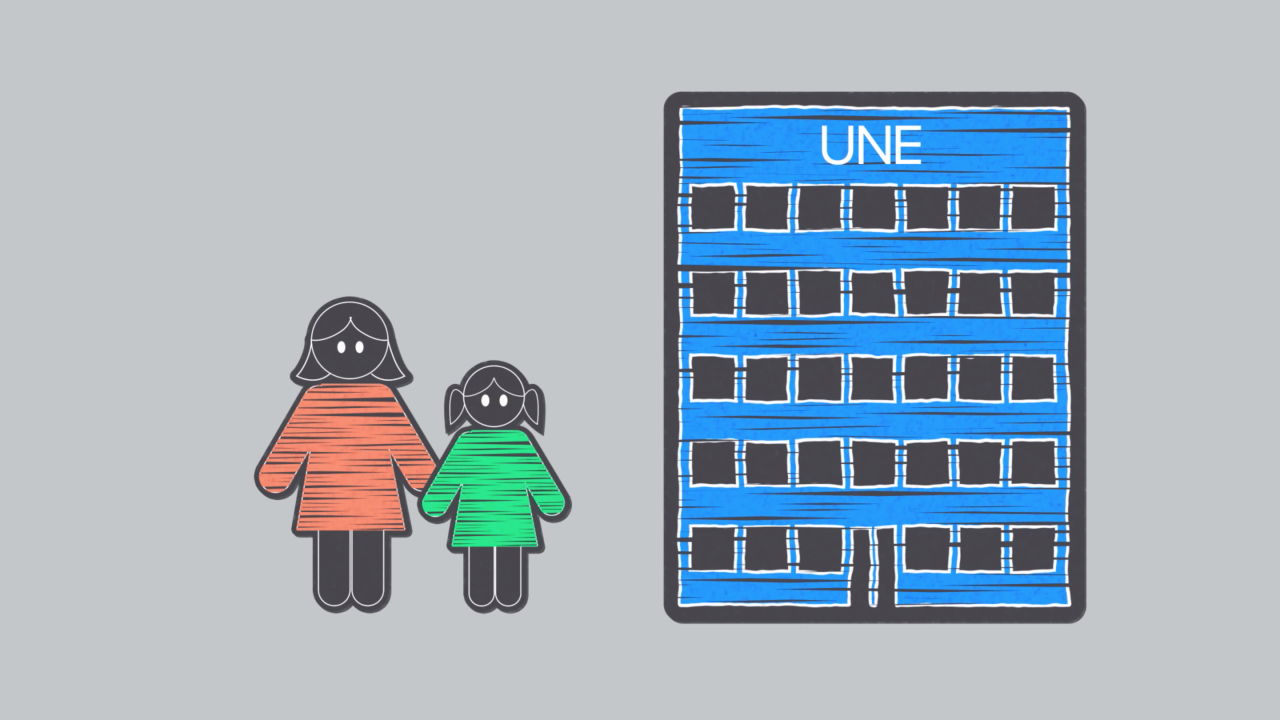All children have the right to be heard
Not able to watch the video?
Here you can see the pictures and read the text

This is Selma. Selma loves football and playing the guitar.

Selma and her family want to live in Norway, but a place called UDI said no. The family has appealed the decision and now their case is with UNE.

UNE will study their case once more, and they are the ones who will finally decide if Selma and her family get to live together in Norway.

When UNE have to make a decision in a case involving children, for instance if Selma and her family get to stay in Norway, they have to think of what is best for the children. But how can UNE know what is best? One way is to listen to what the children themselves have to say.

Because all children have the right to be heard and to be considered in cases that involve them.

It says so in the United Nations Convention on the Rights of the Child.

This means that Selma has the right to express her thoughts and opinions in cases about herself or her family.

When UNE are working on the case concerning Selma and her family, they have to make sure that they know enough about Selma and what is best for her.

There are many ways for Selma to tell UNE what she thinks. She can talk to someone she trusts, for instance a parent, a school nurse, a teacher, a football coach, a lawyer or another adult.

Selma can ask the adult to write down and tell the people who work in UNE what she has said.

Selma can also write a letter herself, or write an email, or she can draw. If she wants to, she can ask an adult to help her.

Sometimes UNE will ask children to come and talk to them. The children are free to decide if they want to go, and they can bring an adult they trust.

UNE has a duty of confidentiality. It means that only the people who are working on Selma's case will know what she has said.

Once Selma has expressed her thoughts and opinions, UNE will keep working on the family's case. That Selma is heard doesn't mean that she gets to decide what will happen. It is UNE that will make the decision on the case. Even if UNE can decide that the family doesn't get to stay in Norway, it is never Selma's fault.

To summarize:
- Children have the right to be heard. It means that children have the right to express their thoughts and opinions in cases that involve them.
- But the children don’t have to if they don’t want to.

UNE's job is to listen to what the children say.
UNE always have to think about what is best for the children before deciding if a family can stay in Norway.










